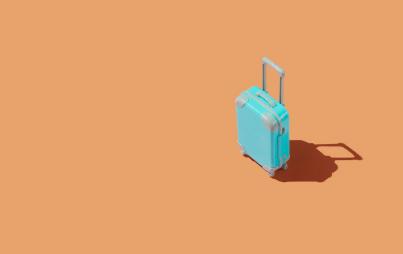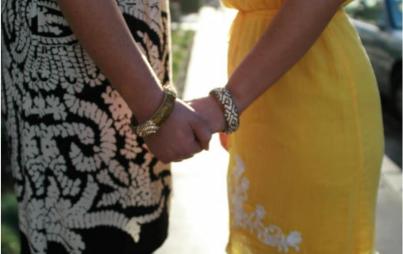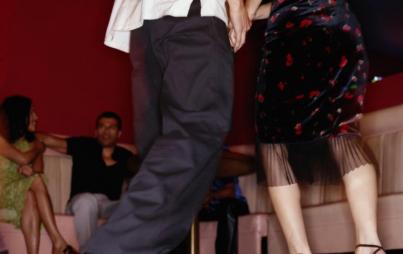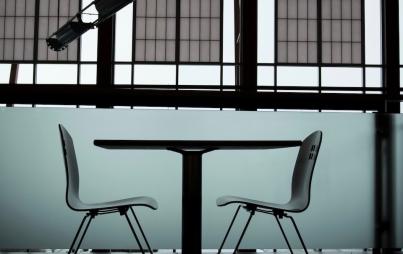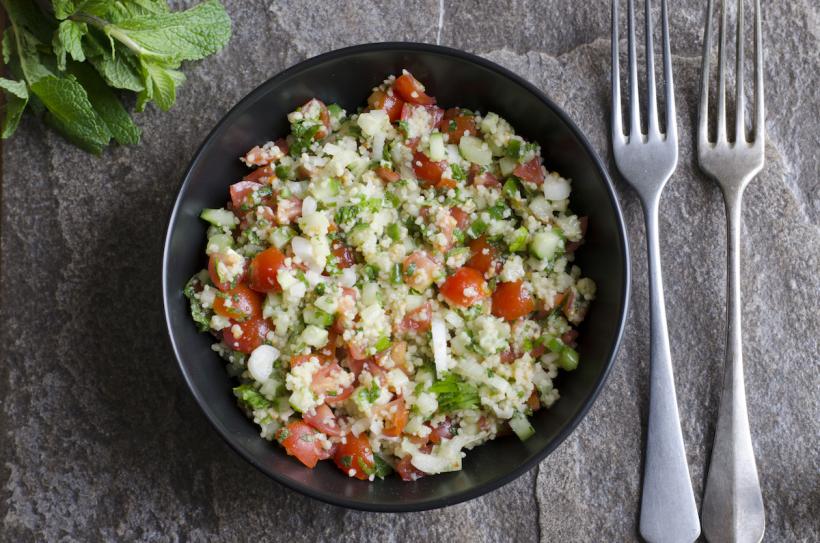
Much of the food we ate ran along these lines: not unrecognizable to the average American, but not at all the same.
For eight minutes, I stood outside the Arab Bank in Bethany in complete silence, my only company the red graffiti spray-painted on the fence across the street. It was Friday, the Muslim Sabbath, in Palestine* — specifically, in East Jerusalem: nothing was open, nobody was out, few cars drove by on the dusty main road in town. I was an American Jew in Palestine. For eight minutes, I wondered if I had made a mistake in coming here, in leaving the relative safety of my hotel in Jerusalem, or the even greater comfort of my Seattle home, where my husband and six-month-old waited for me.
But the most dangerous thing about eating lunch in Palestine was that I might have exploded from eating too much.
As an American Jew, I knew nothing of Palestinian food, and I wanted to learn more. But while, technically, he lived in Jerusalem, this wasn’t like dropping in on a family in Mexico City on your way to the beach. It wasn’t like stopping in Paris on your way to Barcelona. You don’t accidentally pass through Palestine.
When I was planning my trip to Israel — a jaunt through the tomato-laden markets to find the best shakshouka, to learn to make hummus, and to take a culinary tour of the diverse flavors of a country, that as a Jew, is supposedly part of my birthright — my aunt emailed me. “You should go visit Amir**,” she encouraged. “He lives in Jerusalem.”
The 27-year-old doctor had spent a month living with her in Philadelphia. She connected us via e-mail, and he invited me to Friday lunch, the most important meal of the week for his Muslim family, while I was in town.
When I accepted the invitation, I didn’t think twice: not only are home-cooked meals always best, they are the only way to truly taste most cuisines. As an American Jew, I knew nothing of Palestinian food, and I wanted to learn more. But while, technically, he lived in Jerusalem, this wasn’t like dropping in on a family in Mexico City on your way to the beach. It wasn’t like stopping in Paris on your way to Barcelona. You don’t accidentally pass through Palestine. As Amir and I continued to exchange emails about logistics, I began to get nervous.
Amir himself could not come to central Jerusalem to get me. “Writing it in email makes it sound a lot more cumbersome than it really is,” he said, only somewhat reassuringly. But there was a bus that would go from near the Old City via by-pass roads up to his area of East Jerusalem. His father — who is over 50, and thus permitted to travel into the city — would be coming into town for Friday prayers; he could meet me and help get me onto the proper bus. The Google map Amir sent me illustrating the route the bus would follow was my first concrete demonstration of the divide. The 40-minute bus ride would make three-quarters of a circle.
And so it was that I walked a mile across Jerusalem, through the Old City, and out the Damascus Gate, where a throng of headscarf-wearing older women milled about, weighed down with bags of ingredients for their Friday lunches. I continued down the road a few blocks to an old bus station. A middle-aged man wearing a traditional Palestinian outfit — a long robe — looked at me. I waved nervously. In a few minutes he escorted me to the proper bus and gave instructions to the bus driver, then to me: I was to get off at the Arab Bank in Bethany. Someone would meet me there.
That’s how I got there, on that empty street in Palestine, questioning all of my decisions up to that point.
But after eight minutes — and I know, because I checked the time on my phone during every single one of them — a car rambled by on the other side of the street. The window rolled down, and a handsome twenty-something man flashed me a peace sign out the window. Again, I nervously waved. At the end of the street, he flipped the little blue car around and pulled up in front of me. From the passenger seat, a young woman smiled at me. She wore a hot pink headscarf. Nobody said anything, but clearly, they were either there to pick me up or to kidnap me, since nobody else was around. I hoped for the former and hopped in the car.
After a few pleasantries, she finally introduced herself as one of Amir’s sisters. When we arrived at the house, Amir’s mother introduced the driver as her nephew and son-in-law. The full meaning of that double relationship didn’t entirely compute in my head — which was busy trying to be as polite a guest as possible in someone else’s home while having absolutely no idea of local customs — until later, when one of the sisters asked me as she served tabbouleh onto my plate, “You guys,” she said, referring to Americans, “don’t marry cousins, right?”
Amir’s mom wore a headscarf when she first came out to greet me, but once inside, she removed it almost immediately as we sat around her kitchen talking about food. She had cooked the stuffed grape leaves the previous day but showed me how they were layered with meat and squash in a pressure cooker. She saved a few leaves and showed me how to fold them, searching for big leaves to teach me how to roll them — tucking the sides in, then rolling, then re-tucking. Yellow spices tinted the rice and meat filling for the leaves, flecked with green herbs. As I inched through my sample grape leaves, I was thankful they had made the bulk of them already: there was a learning curve on these as steep as the side of the hill on which the house was perched.
The hilltop location gave the kitchen — and the balcony just off it — a perfect view gazing out into the distance. As the crow flies, it was just a few miles from the Old City. But, as the saying goes, “you can’t get there from here.”
Amir pointed out Jerusalem’s iconic skyline while we stood on the wrought iron outpost. I had learned about the places we could see in Sunday school, been told that, as a Jew, they were part of my heritage. Standing next to Amir, that seemed disjointed: I lived half a world away, he could see the city from his porch. But from there — a rural spot without an address — all he and his sisters could do was look — at Jerusalem, at the Israeli settlements springing up around them, and at the expanse of land that unfolded below.
While Jerusalem was a forty-minute bus ride and the Tel Aviv airport just another half-hour beyond that, he also pointed in the direction of Amman, Jordan. When he had gone to Philadelphia — or wanted to travel anywhere — without permission to enter the green lines of Israel, he instead had to drive the two or so hours to the Jordanian border, then spend an unknown amount of time crossing the border, before continuing the last hour or two to the airport.
Amir’s mom made tabbouleh, squeezing the soaking bulgur grains with her hands, then mixing them in a bowl where they became nearly lost, awash in an herby sea of chopped parsley. A few tomatoes and scallions joined, before the salt, lemon juice, and generous glugs of olive oil. It differed as much from what’s called tabbouleh in the United States as our customs do from theirs of marrying first cousins.
Much of the food we ate ran along these lines: not unrecognizable to the average American, but not at all the same.
For example, when cooking rice, Amir’s mom first sautéed dry fideo noodles in clarified butter, then mixed them with the rice to cook. A small difference in style, yet a completely different flavor.
Amir is a doctor, two of his sisters are in medical school, a third is a pharmacist. When each of the oldest two sisters got home mid-day on Friday, they wore gorgeous headscarves that matched their outfits, be it a sweet smock-type dress the sister who picked me up wore or the long, formal coat in which the sister returning from her medical school exams arrived. When they came in from outside, they’d take off the formal covering as if kicking off high heels at the end of the day. Then, one by one, they joined their mother and me in making small meat and cheese pies.
When I’d arrived, the dough was already on a secondary rise, laid out over a thin film of oil on the right on the kitchen table, in rows of small dough balls. Amir’s mom mixed the cheese, studded with nigella seeds, olive oil, and za’atar. For the meat pies, she showered raw ground beef with spices (thanks to Google Translate, I learned that allspice was prominent in many dishes) and chopped herbs, mixing in sliced onions with her hands. Each style of pie, she explained, took a different shape, so later, after they baked, it would be identifiable. We used our hands to press each dough ball — about the size of a dinner roll — flat, then spread the raw meat or a dollop of cheese on it. One of the sisters showed me how to fold the meat ones into triangles, pulling one edge over, then the other, before pinching them shut. It was a forgiving medium, yet, in the end, it was obvious which ones I’d slowly, clumsily made, and which they had. For the cheese pies, we rolled the dough into long cigars, which was much easier.
The kitchen barely held everything; it nearly burst at the seams when four of us worked in it. The many dishes for the lunch stood in various states of preparation around the small laminate counter, the burners on the stove were pieces in an ongoing game of Tetris to keep space available. Ingredients, pots, pans, and gadgets were constantly procured from hidden corners — coffee grinders and packets of cookies for snack, fruits and vegetables from the garden, a blender from a shelf, spiced butter from the freezer. We did most of the prep work at the kitchen table. Sometimes we stirred couscous on a pot resting on a chair. But as we prepared the pies, I wondered about the oven in the kitchen. It was tied closed with a shoelace and seemed to be serving as a storage unit.
“We can’t just go out and buy more things,” Amir’s mom said, as she chopped onions on a warped cutting board.
Nearly everything, she explained, is hard to get in Palestine. When something stops working, they must try to fix it or keep using it, even if it’s broken. We used hot pads with holes burned in them, pots with years of stirring etched into the bottom, and, for the pies, pans with burn marks that held the shadow of the many pies that had come before. We placed the folded pies into those large silver trays, pricking them with a fork before baking. I warily eyed the shoelace holding the oven closed. But, it turned out, in the hallway, there was another oven: a big box connected to a gas tank, also sporting evidence of years of use. The lid on the top flipped up, and we placed pan after pan of cheese and meat pies inside it.
After all the filling had been folded into pies, a few dough balls remained. One of the sisters grabbed ketchup and a different type of cheese and began to make her own version of the pies. She laughed at herself, mentioning that she knew it was sort of kid food, but also saying, “I love cheese. Especially on pizza!” (More internationally relatable words have rarely been spoken). She loved pizza, she continued, but it was hard to get mozzarella in Palestine. I thought back to my previous days in Israel, where fancy shops sported both locally-made and imported cheeses behind glass cases.
Amir’s mom smiled at her daughter’s comments as if to say, “Soon, my dear.” She was 49, she explained, and at age 50, she will be allowed to pass freely through the checkpoints in and out of the main part of Jerusalem. I asked her if she would go shopping with her new found freedom, and it was like asking a little girl if she planned to meet princesses at Disneyland: a smile, a far-away look, and a mind reeling with excitement at the possibilities.
As she squeezed water from the freekeh that was soaking, she told me about how the green wheat was prepared. I helped her stuff it inside a chicken, which was baked in a bag. Tomato sauce stewed on the counter, bubbling up as Amir’s mom expertly spooned it — first over more chicken, poaching the meat, then over the cooked chicken and couscous. The small round pebbles of couscous are what we would call “Israeli couscous” in the U.S. She simply described it as hand-made.
In my hotel room, I lay down that night filled with guilt for my privilege: that I could re-enter Jerusalem without a passport, that I could buy mozzarella with ease, that if something broke in my kitchen, the only barrier to replacing it was money — not what could or couldn’t be imported into the small region to which I was confined.
Later, despite my best attempt to say nothing that offended my hosts, when they asked about the rest of my trip to Palestine, I mentioned that I would be in Israel the rest of the time. Looking at the expanse of land out the kitchen window, one of the sisters explained, “We call it all Palestine.”
We ate in the living room, where there was more space. A few tables pushed together held all of the food we’d spent the morning preparing, and around it, we sat: Amir’s parents, many sisters, brother-in-law, and myself. Plus a cousin who dropped in at the last minute — not the only time it happened in my eight hours there. Each time the doorbell rang, the women in the family scurried about to find a casual headscarf. For moments like these, they found a cape-like piece which fit over their heads and down their torsos, with enough fabric that they didn’t need sleeves, just little holes where their hands popped out.
When we sat down to eat together, everyone took turns serving me from a dish in front of them. Each served me a full portion as if what they were handing me was my entire meal. Since we’d made, essentially, three salads, two appetizers, and four main dishes, this was a lot of food. Each time I took a bite, of, say, some ground beef with peas, somebody dolloped more of it on my plate. It was like blowing out trick birthday candles: I nibbled a wing from the roasted chicken stuffed with freekeh, and by the time I turned back to my plate, another entire leg from the dish would have shown up.
I ate and ate, trying to show my appreciation through consumption. Every time I stopped to breathe or digest, I felt as though I was letting my hosts down.
We noshed through the two types of pies — cheese and meat. The salads included an “American” version of chopped lettuce and tomatoes, tabbouleh, and shredded purple cabbage. The main dishes were the freekeh-stuffed chicken (my personal favorite), the couscous and stewed chicken in tomato sauce, and the ground beef and peas cooked in clarified butter, served over the rice. Finally, full to the point of uncomfortable, I gave in, my plate looking no emptier than it had before I’d dug in.
“Would you like to tour the garden?” Amir’s mom asked.
"Yes," I said quickly, seeking the opportunity to attempt to digest while walking around the property.
I met their pet turtle, who meandered slowly in the shade of the front yard. We walked around the side of the house, where we picked lemons for lemonade later, and mint to flavor it. Underneath the house, we visited the goats, which Amir’s mom rolled her eyes about in the way that women everywhere do about their husband’s silly hobbies be they golf, poker, or goat-keeping. He insists on them, she says, and each year she is overwhelmed by goat milk, unable to put it all to use as fast as they produce. (I sampled the funky, liquid style of goat yogurt she made with it.) We visited with the bunnies, which belong to the youngest sister and live in an underhang below the living room. We picked a loquat from a tree, and learning I’d never had one before, our walk to digest quickly turned into a tasting tour. The loquat was sweet and ripe, and I was glad I pushed my body into some sort of distended emergency mode to try it.
When we were sitting around after the meal, I realized I stupidly did not bring my passport. I kicked myself for being so flippant about traveling around without it. Since the minute I arrived at Amir’s family’s home, I’d been treated so well, enjoyed myself so immensely, and eaten such wonderful food that, for a few hours, I’d forgotten what a contested place it was to which I’d traveled.
I felt every bit the spoiled American.
After a short discussion, it was decided it would be unlikely I’d get stopped at the checkpoint — even less so if I rode back into town in a car rather than by bus. Amir ran next door, where a cousin was working on his house there, and asked him when he was headed back into town. The cousin had a permit to enter Jerusalem freely because he works in the restaurant of a hotel there.
As we rode nervously back into Jerusalem — I don’t know that I breathed until after we crossed the checkpoint without being stopped — he told me about serving people like Hillary Clinton and George Bush in the formal dining room of the prestigious hotel. After I began breathing again, he too admitted to being nervous.
“I looked at their eyes,” he said, about sussing out the body language of the many guards to see which one he thought was the best bet for not stopping us.
I was awed by Amir’s family’s generosity — even this cousin, who until an hour before we left, had no idea what he was getting roped into. “My mother’s main goal was to welcome you as a guest,” Amir later wrote me in an email, saying it was how she felt she could best thank my aunt for hosting her son. But in truth, it had been more than just being a guest: Amir’s family had shared with me the experience of being in Palestine, of seeing the constraints within which they live.
To be a Jew in America is often to receive a single-sided education on a multi-faceted region, now I’d seen just a tiny glimpse of the part I never learned about in Sunday school. They served a meal that taught me the flavors of their world — shared their frustrations and joys, opened the door to let me peek into a daily life completely different than my own.
In my hotel room, I lay down that night filled with guilt for my privilege: that I could re-enter Jerusalem without a passport, that I could buy mozzarella with ease, that if something broke in my kitchen, the only barrier to replacing it was money — not what could or couldn’t be imported into the small region to which I was confined. That I could fly out of the airport closest to my home.
But most of all, that this family — who had never before met me, who out of the kindness of their hearts, welcomed me into their home —shared their food and their celebration with me.
The table Amir’s family set for me was as colorful and safe, as welcoming and happy as the street in Bethany had been barren and dusty. For each of the eight minutes I’d stood frightened on that street corner, worrying that I’d made a bad decision or put myself in a dangerous situation, there was an hour in which I’d sipped fresh-brewed coffee, learned to fold grape leaves, explored new fruits, and learned about a culture with which few in the U.S. are familiar.
*I use the term "Palestine" for areas occupied/annexed by Israel since 1967, sometimes also called the "Occupied Territories." (This follows the usage of the family I visited.) Israel considers East Jerusalem an integral part of Israel; most other countries, including the United States, do not.
**Names in this story have been changed because, in the words of Amir, “It’s a touchy situation here,” and there could be problems related to black-listing of the family concerning getting permits to enter Jerusalem.



